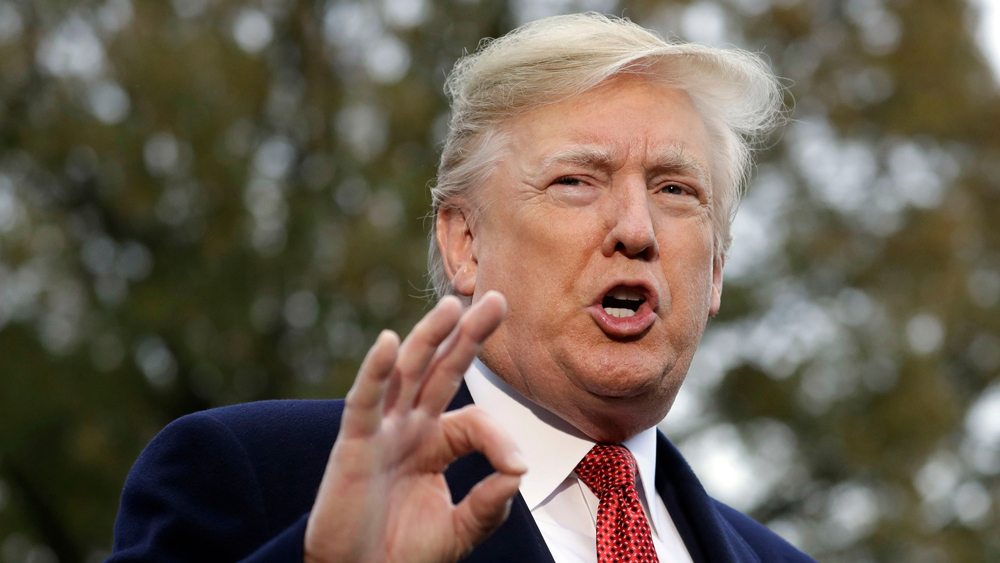Trump Reportedly Directed Hush Money Payments and National Enquirer Offered to Help
By Ted Johnson
LOS ANGELES (Variety.com) – WASHINGTON — President Donald Trump directly intervened to suppress stories about alleged affairs with women, despite denials of knowing about payments, according to the Wall Street Journal .
The Journal also shed more light Friday on the cozy relationship between Trump and David Pecker, the CEO of American Media — the parent company of the National Enquirer.
According to the Journal, Pecker and Trump met at Trump Tower in August 2015, just as Trump’s presidential campaign was starting. Pecker then offered to use the Enquirer to pay off women if they attempted to go public with allegations of sexual contact against Trump.
A spokesman for AMI said they had no immediate comment.
AMI’s assistance to Trump isn’t all that surprising, given that Trump and Pecker had a longtime friendship, and that the Enquirer regularly published cover stories flattering to Trump and negative to his political rivals.
In August, Trump’s former attorney Michael Cohen pled guilty and implicated Trump in the effort to pay off two women, Stormy Daniels and Karen McDougal.
At the time, prosecutors outlined the involvement of American Media and the Enquirer, referring to them as “corporation 1” and “magazine 1.” Prosecutors detailed how the publication kept Cohen apprised throughout the course of the campaign of salacious allegations, and that eventually led to the purchase of the Daniels and McDougal stories “so as to suppress them and prevent them from influencing the election.”
The heart of the government’s claims against Cohen are that the payments violated campaign finance laws, and Trump’s involvement also raises questions of whether he faces legal liability.
According to the Journal, Pecker was also aware of the legal exposure he could face, and at one point researched campaign finance law and consulted a specialist. The $150,000 deal with McDougal was finalized in August 2016; the publisher would get exclusive rights to her story and she would also get two American Media cover stories and the possibility of health and fitness columns.
Cohen told Pecker that Trump would reimburse the publisher, and they worked on a plan to transfer rights to McDougal’s story to a shell company set up by Cohen. But Pecker called off the deal because he was concerned that it would be considered an in-kind campaign contribution, a key detail as it signals that there was an awareness of the impact that such a story would have on Trump’s electoral prospects.
Around the same time, Daniels was preparing to go public with her story, and was in preliminary talks with ABC’s “Good Morning America.” Pecker, though, refused to buy her story.
Cohen told prosecutors that he then went to Trump with the news that they would have to handle the $130,000 payment themselves, and Trump told him to “get it done,” according to the Journal. Cohen eventually used his own home equity line of credit to make the payment.
Pecker has been granted immunity, and told investigators of Trump’s involvement in the deal, the Journal reports.
Press outlets generally are exempt from campaign finance laws, but not a corporate parent, according to Trevor Potter, the founder and president of the Campaign Legal Center and former chairman of the Federal Election Commission. In August, Potter said what is problematic is if AMI “entered into an agreement with Trump and his campaign to use corporate money to squelch information detrimental to Trump’s election.”
Cohen is scheduled to be sentenced in December.

